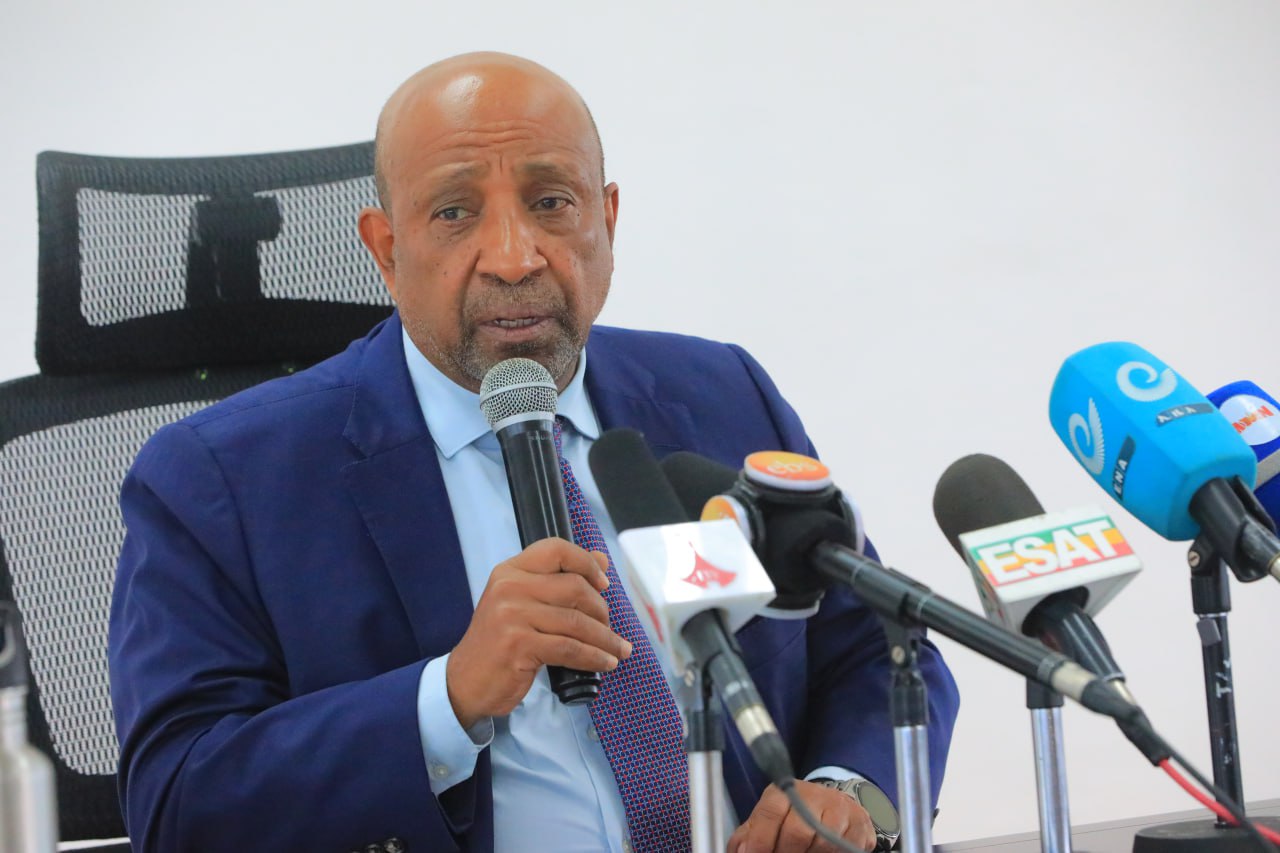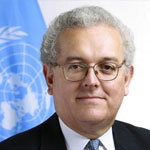
Verbatim | Aug 30,2025
Nov 20 , 2021
By José Antonio Ocamp
G20 leaders claim – with much self-satisfaction – that they are addressing the global tax-abuse problem, which deprives governments of 483 billion dollars every year. But if the G20 is serious about rectifying the injustice of cross-border tax abuse, it should support developing countries’ call to establish a global tax body at the UN, writes José Antonio Ocampo, a former finance minister of Colombia and United Nations under-secretary-general.
The last two years have thrown into sharp relief the structural injustices that underpin the global economy. As the COVID-19 pandemic drove an estimated 88-115 million people into extreme poverty, the world’s billionaires saw their wealth increase by more than a quarter. And while countries in the Global North are now administering vaccine boosters, those in the Global South continue to struggle to secure even first doses for their populations.
This appalling level of inequality is inextricably linked to rampant cross-border tax abuse, which is being perpetrated by both multinational corporations and wealthy individuals. By refusing to pay their fair share of taxes, the world’s wealthiest actors rob poorer countries of the revenue they desperately need to confront the pandemic, such as by securing vaccine doses and supporting vulnerable citizens.
G20 leaders claim – with much self-satisfaction – that they are addressing the problem: they recently agreed to establish a global minimum corporate tax rate, thereby ending the “race to the bottom” fueled by global competition for foreign investment. But the agreed rate is just 15pc, and targets only a sliver of the profits of 100 multinationals. This will do about as much to help poor countries as a glass of water would do to put out a wildfire.
The new State of Tax Justice report – published jointly by the Tax Justice Network, Public Services International, and the Global Alliance for Tax Justice – illustrates the scale of the conflagration: 483 billion dollars in public revenue is lost to cross-border tax abuse each year. That is enough to vaccinate every man, woman, and child on the planet three times over.
Of the total losses, corporate-tax abuse by multinational companies accounts for 312 billion dollars, with offshore tax evasion by wealthy individuals accounting for the rest. While wealthier countries technically bear a larger share of those losses, it is poorer countries that suffer the most.
In fact, while high- and upper-middle-income countries lose some 443 billion dollars to abusive international tax practices annually, that amounts to just 10pc of their public-health budgets. Low- and lower-middle-income countries lose about 40 billion dollars – the equivalent of a staggering 48pc of their public-health budgets.
Moreover, it is wealthy countries that are to blame for this state of affairs. Not only have they refused to tackle the problem in a meaningful way; they provide the financial services that enable international tax abuse.
The United Kingdom, together with its network of overseas territories and Crown Dependencies, is responsible for 39pc of the overall losses. The Netherlands, Luxembourg, and Switzerland account for another 16pc. Taken together, the OECD countries are responsible for 78pc of revenue losses to international tax abuse each year.
The double standards are astounding. After all, it was under the OECD’s inclusive framework on tax base erosion and profit shifting (BEPS) that the much-touted G20 tax deal was designed. Some of the same countries that are enabling all this tax abuse – most notably, the UK and Switzerland – are also blocking a waiver on intellectual-property rights that would enable a massive vaccine rollout in the Global South.
This raises serious questions about whether the OECD is the right institution to coordinate global tax negotiations. True, the OECD opened the way for over 100 non-OECD members to have a voice in the negotiations. But several developing-country proposals were left out of the final agreement.
Not surprisingly, poor countries were far from satisfied. As the G20 was meeting in Rome late last month to endorse the deal, the G77, representing 134 developing economies, reiterated its longstanding call to establish a global tax body at the United Nations, which would take responsibility for reforming global tax regulations and cracking down on offshore tax-havens.
The proposal – under which the UN Committee of Experts on International Cooperation in Tax Matters would be transformed into an intergovernmental forum – was first advanced in 2004 by then-UN Secretary-General Kofi Annan and myself, as Under-Secretary-General for Economic and Social Affairs. The G77 echoed our call in 2015, at the UN Conference on Financing for Development in Addis Abeba.
A global UN tax body is also a key recommendation of the UN High-Level Panel on International Financial Accountability, Transparency, and Integrity for Achieving the 2030 Agenda, and of the Independent Commission for Reform of International Corporate Taxation (ICRICT). (I proudly served on both.) And it aligns with the demands of global civil society.
If the G20 had finalised a deal that was fair to developing economies, the G77 would not have reiterated its call for a UN tax body. That is why the ICRICT has demanded that negotiations to deliver a new global tax deal continue during the G20 presidencies of Indonesia in 2022 and India in 2023.
But real progress will require changing the format of negotiations, to ensure that developing countries’ voices are heard. If the G20 is serious about rectifying the injustice of cross-border tax abuse, it should support the call for a genuinely inclusive process at the UN.
PUBLISHED ON
Nov 20,2021 [ VOL
22 , NO
1125]


Verbatim | Aug 30,2025

Commentaries | Sep 10,2022

Commentaries | Apr 20,2024

Viewpoints | Dec 10,2022

Fortune News | Jan 07,2022

Life Matters | Jan 07,2024

My Opinion | Mar 05,2022

Covid-19 | Jun 11,2021

Commentaries | Dec 07,2024

Viewpoints | Dec 26,2020

Photo Gallery | 175911 Views | May 06,2019

Photo Gallery | 166127 Views | Apr 26,2019

Photo Gallery | 156537 Views | Oct 06,2021

My Opinion | 136852 Views | Aug 14,2021

Dec 22 , 2024 . By TIZITA SHEWAFERAW
Charged with transforming colossal state-owned enterprises into modern and competitiv...

Aug 18 , 2024 . By AKSAH ITALO
Although predictable Yonas Zerihun's job in the ride-hailing service is not immune to...

Jul 28 , 2024 . By TIZITA SHEWAFERAW
Unhabitual, perhaps too many, Samuel Gebreyohannes, 38, used to occasionally enjoy a couple of beers at breakfast. However, he recently swit...

Jul 13 , 2024 . By AKSAH ITALO
Investors who rely on tractors, trucks, and field vehicles for commuting, transporting commodities, and f...

Oct 18 , 2025
The political establishment, notably the ruling party and its top brass, has become p...

Oct 11 , 2025
Ladislas Farago, a roving Associated Press (AP) correspondent, arrived in Ethiopia in...

Oct 4 , 2025
Eyob Tekalegn (PhD) had been in the Governor's chair for only weeks when, on Septembe...

Sep 27 , 2025
Four years into an experiment with “shock therapy” in education, the national moo...

Oct 18 , 2025 . By NAHOM AYELE
In a sweeping reform that upends nearly a decade of uniform health insurance contribu...

A bill that could transform the nutritional state sits in a limbo, even as the countr...

Oct 18 , 2025 . By SURAFEL MULUGETA
A long-planned directive to curb carbon emissions from fossil-fuel-powered vehicles h...

Oct 18 , 2025 . By BEZAWIT HULUAGER
Transaction advisors working with companies that hold over a quarter of a billion Bir...